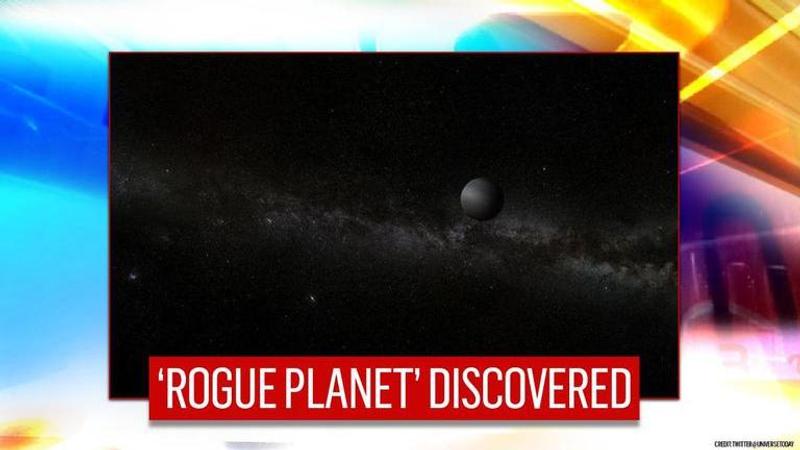Published 16:27 IST, October 4th 2020
'Rogue planet' with same mass as Earth discovered drifting in Milky Way without a star
Astronomers have recently found a ‘rogue planet’, named ‘OGLE-2016-BLG-1928’ and about the same mass as Mars or Earth, drifting in the Milky Way.

Astronomers have recently found a ‘rogue planet’, which is about the same mass as Mars or Earth, drifting in the Milky Way. ‘Rogue planets’ are those planets that leave the gravitational embrace of the solar system and drift through the interstellar space forever. A team of scientists from the OGLE (Optical Gravitational Lensing Experiment) and KMTN (Korean Microlensing Telescope Network) have now discovered a low-mass rogue planet, which has no stars near it and its distance from Earth still remains unknown.
According to the study that presented the discovery, the 30 authors who are listed as contributors for the work, said that they believe that in the early days of a solar system, some low-mass planets will be ejected from the star’s gravitational grip. The astronomers said that things can be chaotic in the early days and gravitational interactions between the star and all the planets can sometimes send small planets out into space to fend themselves.
The scientists said, “According to planet-formation theories, such as the core accretion theory, typical masses of ejected planets should be between 0.3 and 1.0 Earth masses."
Finding the ‘rogue planets’ in the vast darkness of space requires an innovative approach, i.e., gravitational lensing. The scientists said that in this case, the low-mass planet acts as the lens and depending on how much the light from the distant star is affected by the foreground object, astronomers can learn quite a bit. The authors explained that a relatively tiny object like a low-mass planet does not bend much light, and not for too long, either.
In the paper, the scientists said, “Microlensing events due to terrestrial-mass rogue planets are expected to have extremely small angular Einstein radii and extremely short timescales”.
‘Strong evidence’ for ‘rogue planet’ population
Past studies have shown that there could be billions or even trillions of free-floating planets in the Milky Way. In the recent study, the astronomers have listed the ways these rogue planets can end up orphaned. The ways include planet-planet scattering; dynamical interactions between giant planets that lead to orbital disruption of smaller, inner planets; interactions between the stars in binary or trinary systems and star clusters; stellar fly-bys; and the evolution of the host star past the main sequence.
The newly-discovered rogue planet has been named ‘OGLE-2016-BLG-1928’. It was discovered in a micro-lensing event which lasted only 41.5 minutes. The astronomers, in the study, informed that only four other small rogue planets similar to this have been found before, each one in a short timescale micro-lensing event. Together, these events provide "strong evidence for a population of rogue planets in the Milky Way," the scientists said.
Updated 16:27 IST, October 4th 2020



